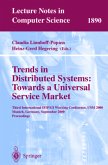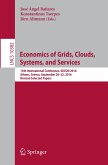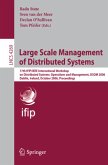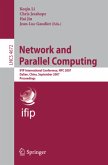analysis. Their results show that interoperability is the most indispensable element to a successful utilization of Grid infrastructures in enterprises. In the third contribution, Altmann and colleagues formulate a taxonomical - proach to Grid business models. They survey the development and origin of Grid technologies and focus on the importance of business-directed values when trying to commercialize today's Grids. Therein, they identify the reduction of costs, the - provement of efficiency, the creation of novel products and services as well as the quality and collaboration between companies as key factors for the differentiation of Grid business models. The paper concludes by applying the proposed taxonomy to a utility computing scenario and a software-as-a-service scenario in practice. Stanoevska-Slabeva and Zsigri propose a generic value chain for the Grid industry. In their contribution, they suggest a case study on aggregating results from different Grid middleware modules into a generic Grid value chain. In their contribution, McKee and coauthors propose a set of strategies for acting in future service-oriented markets. The costs of negotiations are put in relation to the value of the offer under negotiation. Hence, the contribution adds to the state of the art by extending the vision of service level agreements (SLAs) within service fra- works. Sandholm and Lai propose a novel, prediction-based enforcement of performance contracts. Their approach aims at controllable quality of service (QoS) within Grid computing platforms. The proposed mechanism is based on a hybrid resource allo- tion system using both proportional shares and reservations.








